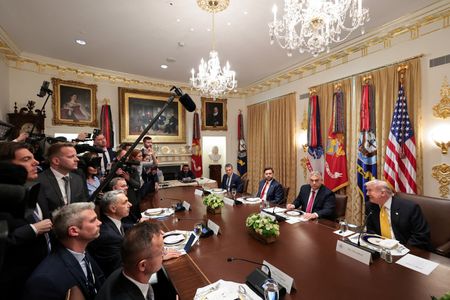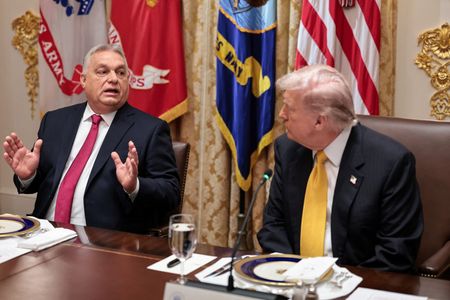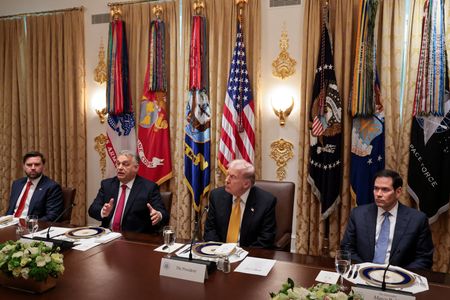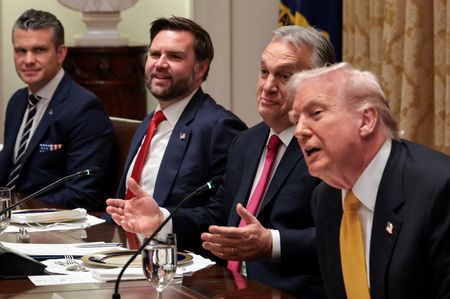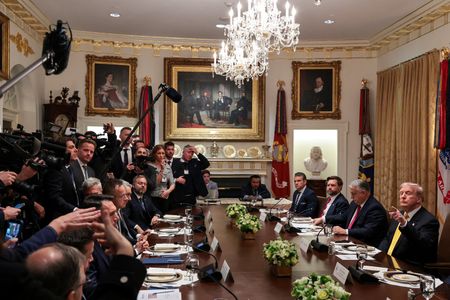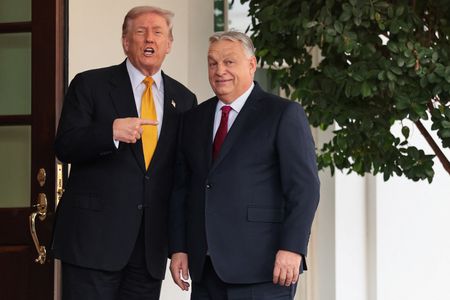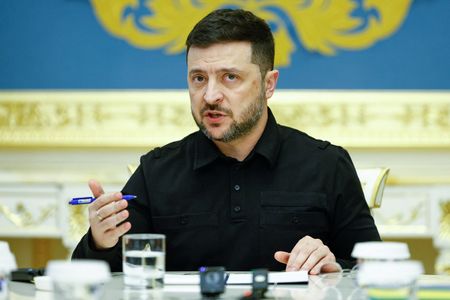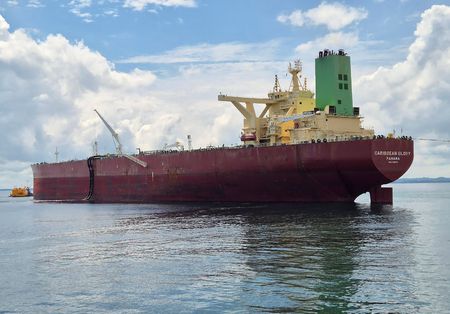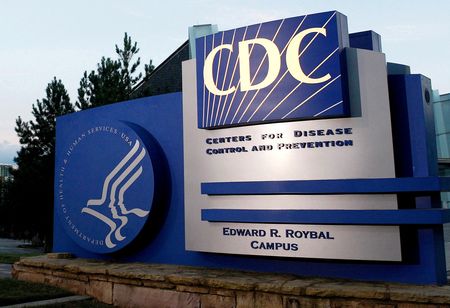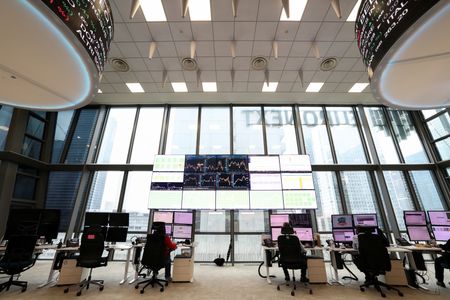By Nandita Bose and Jeff Mason
WASHINGTON (Reuters) -U.S. President Donald Trump heaped praise on Hungarian Prime Minister Viktor Orban on Friday at a White House meeting that glossed over differences about Hungary’s use of Russian oil and its disputes with fellow members of the European Union about immigration and Ukraine.
Orban, a long-time Trump ally, sat next to Trump in the White House Cabinet Room for their first bilateral meeting since the Republican returned to power and explained why his country needed to use Russian oil at a time when Trump has been pressing Europe to stop doing so.
Orban said the issue was vital for Hungary, which is a European country, and pledged to lay out “the consequences for the Hungarian people, and for the Hungarian economy, not to get oil and gas from Russia.”
Trump, who has been pushing Europe to avoid using Russian energy in order to put pressure on Moscow to end its war with Ukraine, appeared sympathetic to Orban’s position.
“We’re looking at it, because it’s very different for him to get the oil and gas from other areas,” Trump said. “As you know, they don’t have … the advantage of having sea. It’s a great country, it’s a big country, but they don’t have sea. They don’t have the ports.”
“But many European countries are buying oil and gas from Russia, and they have been for years,” Trump added. “And I said, ‘What’s that all about?'”
Hungary has maintained its reliance on Russian energy since the start of the 2022 conflict in Ukraine, prompting criticism from several European Union and NATO allies.
International Monetary Fund figures show Hungary relied on Russia for 74% of its gas and 86% of its oil in 2024, and the Fund warned that an EU-wide cutoff of Russian natural gas alone could force output losses in Hungary exceeding 4% of GDP.
Hungarian officials said in the run-up to the meeting that Orban aimed to discuss a path to a U.S.-Russia meeting and seek exemptions from U.S. energy sanctions. Last month Trump imposed Ukraine-related sanctions on Russian oil companies Lukoil and Rosneft that carried the threat of further sanctions on entities in countries that buy oil from those firms.
Trump said last month that he would meet Russian President Vladimir Putin in the Hungarian capital, but the meeting was put on hold after Russia rejected a ceasefire.
Trump on Friday said Russia simply did not want to stop fighting. “The basic dispute is they just don’t want to stop yet. And I think they will,” he said.
The president asked Orban if he thought Ukraine could win the war. A “miracle can happen,” Orban responded.
ECONOMIC COOPERATION
The two leaders also planned to discuss ways of greater economic cooperation between the United States and Hungary. Orban predicted a “golden age” between the two nations and made a point of criticizing President Joe Biden’s administration, a sure way to garner favor with Trump, who continues to use Biden as a frequent foil.
The Hungarian leader, who faces an election in 2026, has cultivated a strong personal rapport with Trump over the years, including on their shared hard-line immigration policies. Trump on Friday gave Orban his support for the election.
“He has not made a mistake on immigration. So he’s respected by everybody, he’s liked by some…I like and respect him, I’m a double,” Trump said. “And that’s the way Hungary is being led. They’re being led properly, and that’s why he’s going to be very successful in his upcoming election.”
The EU’s top court ruled last year that Hungary must pay a 200-million-euro ($216 million) fine for not implementing changes to its policy of handling migrants and asylum seekers at its border. It must also pay a daily fine of one million euros ($1.08 million) until it fully implements the measures. Orban referenced the fine during his meeting with Trump but said Hungary would handle its inner-EU disputes on its own.
A tangible sign of Hungary’s improved ties with the United States under the Trump administration came last month when the U.S. fully restored Hungary’s status in its visa waiver program.
Hungary has pushed back against plans by the European Commission to phase out the EU’s imports of all Russian gas and liquefied natural gas by the end of 2027, deepening a rift with Brussels over relations with Moscow.
Ratings agency S&P noted that Hungary has one of the most energy-intensive economies in Europe – and that its domestic refineries are built to process Russian Urals crude oil. While it said gas supplies from Azerbaijan and Qatar could help replace Russian supply, it warned that Hungary’s fiscal and external accounts remain vulnerable to an energy shock.
(Reporting by Nandita Bose and Jeff Mason in Washington; additional reporting by Steve Holland, Anita Komuves, Timothy Gardner, Doina Chiacu, Katharine Jackson, Maya Keidan, and Gergely Szakacs; Editing by Colleen Jenkins, Alistair Bell and Diane Craft)

